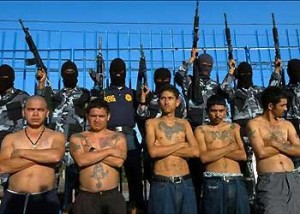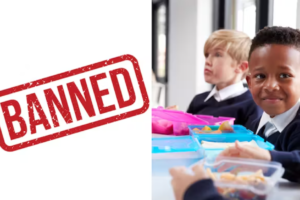As governments across the US and Europe continue their “zero-tolerance” policies on drugs, there is one hidden dimension of the narcotics war that is very rarely acknowledged.
Over 500,000 US citizens have been locked up as part of the war on drugs, however the drugs industry is still in full swing, thanks to the intervention of the banks.
HSBC, Western Union, Bank of America, JP Morgan Chase&Co, Citigroup, Wachovia amongst many others are just some of the names that have allegedly failed to comply with American anti-money laundering (AML) laws.
In July 2012, the US Senate Committee on Homeland Security and Governmental Affairs issued a 339 page report which highlighted HSBC’s involvement in criminal activities.
This includes washing over $881 for the Mexican Sinaloa Cartel and for the Norte del Valle Cartel in Colombia.
Jack Blum an attorney and former Senate investigator has commented, “They violated every goddamn law in the book. They took every imaginable form of illegal and illicit business.”
HBUS, a wholly-owned subsidiary and the principal banking subsidiary of HSBC USA was repeatedly instructed to improve its anti-money laundering (AML) program.
Writing for Global Research, journalist Dylan Murphy, said: “In 2003 the Federal Reserve Bank of New York took enforcement action that called upon HBUS to improve its anti-money laundering program. In September 2010 the Office of Comptroller of the Currency (OCC) sent a, ‘blistering supervisory letter’ to HBUS listing numerous AML problems at the bank.
“In October 2010 this was followed up with the OCC issuing a cease and desist order requiring HBUS to improve its AML program a second time.”
Senator Carl Levin chairman of the Senate investigation into HSBC has explained that ,”HSBC’s Chief Compliance Officer and other senior executives in London knew what was going on, but allowed the deceptive conduct to continue.”
During senate hearings which took place on 17 July 2012, Carl Levin Chairman of the Committee on Homeland Security and Governmental Affairs highlighted the link between the big banks and Mexican drug cartels.
He said: “Because our tough AML laws in the United States have made it hard for drug cartels to find a U.S. bank willing to accept huge unexplained deposits of cash, they now smuggle U.S. dollars across the border into Mexico and look for a Mexican bank or casa de cambio willing to take the cash. Some of those casas de cambios had accounts at HBMX. HBMX, in turn, took all the physical dollars it got and transported them by armored car or aircraft back across the border to HBUS for deposit into its U.S. banknotes account, completing the laundering cycle.
“Over two years, from 2007 to 2008, HBMX shipped $7 billion in physical U.S. dollars to HBUS. That was more than any other Mexican bank, even one twice HBMX’s size. When law enforcement and bank regulators in Mexico and the United States got wind of the banknotes transactions, they warned HBMX and HBUS that such large dollar volumes were red flags for drug proceeds moving through the HSBC network.”
Just for clarity, HBMX is (HSBC Mexico) and AML laws are anti-money laundering laws.
In December 2012, the Department of Justice cut a deal with HSBC which imposed a record $1.9 billion dollar fine – just a fraction of its annual profits, which are in excess of $22 billion.
Assistant Attorney General Lanny Bauer announced the settlement at a press conference on 11 December 2012 and added: “Had the US authorities decided to press criminal charges, HSBC would almost certainly have lost its banking license in the US, the future of the institution would have been under threat and the entire banking system would have been destabilized.”
HSBC Chief Executive Stuart Gulliver later acknowledged the past crimes committed by HSBC and said: “We accept responsibility for our past mistakes. We have said we are profoundly sorry for them, and we do so again.”
On 4 March 2013, HSBC announced profits of $20.6 billion in 2012 while it paid out a $3 million bonus to its CEO.
But HSBC is not the only culprit that has been involved in these types of scandals. In March 2010, Wachovia cut a deal with the US government which saw the bank being given fines of $160 million under a ”deferred prosecution” agreement. This was due to Wachovia’s heavy involvement in money laundering moving up to $378.4 billion over several years.
However, not one banker has been prosecuted as a result for their part in the illegal trade. In contrast, those caught with drugs on the street are often subject to strip and cavity searches, in addition to jail time ranging between 10 and 20 years, depending on how much they are caught with.
Charles A. Intriago, president of the Miami-based Association of Certified Financial Crime Specialists said: “If you’re an individual, and get caught, you get hammered.
“But if you’re a big bank, and you’re caught moving money for a terrorist or drug dealer, you don’t have to worry. You just fork over a monetary penalty, and then raise your fees to make up for it.
“Until we see bankers walking off in handcuffs to face charges in these cases, nothing is going to change. These monetary penalties are just a cost of doing business to them, like paying for a new corporate jet.”
Akashic Times is the UK’s only online, fully independent not-for-profit weekly newspaper that brings you real news from across the globe.
If you want to keep ahead of what is really going on in the world, subscribe to our newspaper via the subscribe button and join our Facebook & Twitter pages. Subscription is completely free ofcourse

















Follow Us!